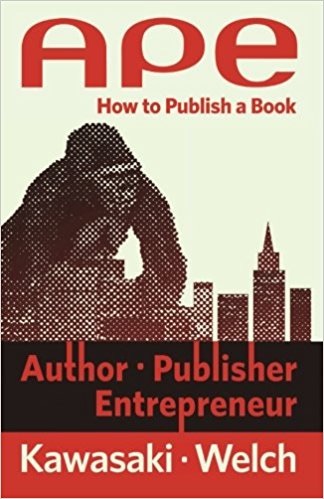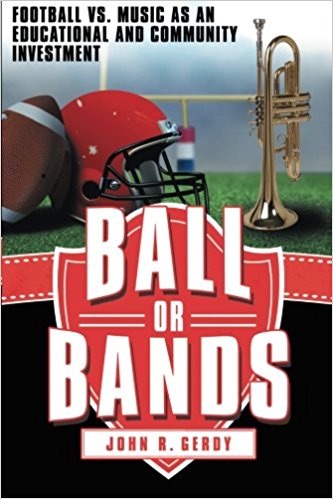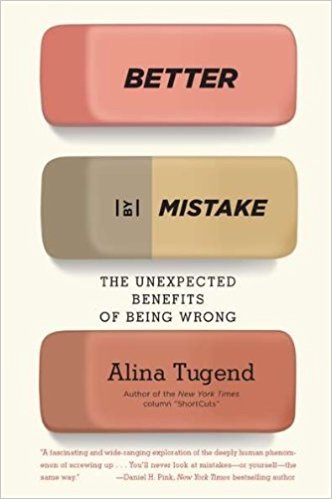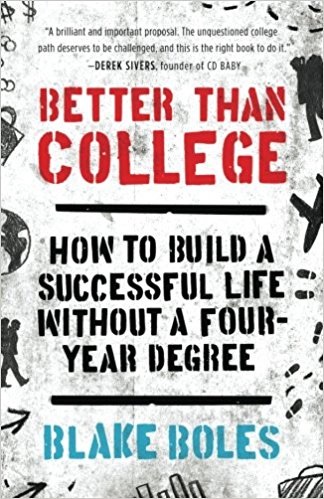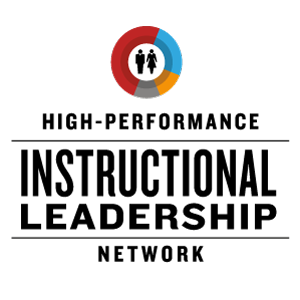Archive for the ‘Education Books’ Category
Sunday, May 2nd, 2010
The College Board’s Advanced Placement Program has grown significantly since the mid 1990’s as policy makers have added courses for students who are for the most part not ready. In AP: A Critical Examination of the Advanced Placement Program, a new release from The Harvard Education Press, seventeen authors share their research. The main point is that an AP course for an unprepared student is at best a waste of time and resources. It is clear from this work that more effort needs to be directed to earlier grades rather than simply raising expectations at the top.
Click here to see the summary of this book.
Tags: Advanced Placement, AP, College Board, Harvard Education Press
Posted in Book Summaries, Education Books | Comments Off on AP: A Critical Examination of the AP Program Harvard Ed. Press
Thursday, December 13th, 2012
APE: How To Publish a Book by Guy Kawasaki and Shawn Welsh (©2012) As the digital world has created a revolutionary opportunity for writers to become their own publishers, a new self-publishing infrastructure has emerged. This book offers a guide to this new publishing universe with details and inspiration. After you read this you are unlikely to let anyone tell you that you shouldn’t, wouldn’t, or couldn’t write a book. The APE in the title stands for Author, Publisher, and Entrepreneur, and Guy and Shawn devote sections of this book to each part of the process. It makes for a great read and a better reference as you bring your book to life. Be sure to click the icon at the bottom of any page to support this stellar self-published effort.
Guy and Shawn
- Guy Kawasaki is the author of eleven previous books, including What the Plus!, Enchantment, and The Art of the Start. He is also the cofounder of Alltop.Com and the former chief evangelist of Apple. Kawasaki has a BA from Stanford University, an MBA from UCLA, and an honorary doctorate from Babson College.
- Shawn Welch is the author of From Idea to App, iOS 5 Core Frameworks, and iOS 6 for Developers. He is also the developer of several iOS apps. Previously he worked as a senior media editor for Pearson Education. He helped pioneer many of Pearson’s earliest efforts in iPad solutions. Welch has a BS from Kansas State University.
[Author Section] Why should anyone give a shiitake about your book?
- This is the question Guy starts with to help you decide if you should write a book in the first place. Keep in mind that people by books to help themselves, not to further your career. Question two is, will your book enrich your readers with some combination of knowledge, understanding, entertainment, or laughter? If your answer is yes you should write a book. Other good reasons include the value of the intellectual challenge, furthering a cause you believe in, and the therapeutic value of the process. Bad reasons are thinking you are in popular demand and that you will make a lot of money. You just might. but the odds are against you.
Some Publishing History
- While we don’t have to wait for scribes to hand copy books anymore, publishing a book in the traditional way still takes twelve to eighteen months. Authors and readers can’t wait this long anymore. Guy details the steps and the people involved in the traditional approach from agents to editors to copy editors to publicists. He warns about being rejected, and gives examples of many famous writers who had rejection experiences. He notes that traditional publishing is under siege by many forces, and may not be appropriate for writers like you. Self-publishing, on the other hand, is the best thing that has ever happened to writers.
The Self-Publishing Revolution
- Traditional publishing grew up in a world with limits and logistics such as shelf space, access to printing presses, editing and production expertise, and shipping of physical books. The 1980’s brought us laser printers and software that allowed anyone to publish. This was followed by electronic delivery systems that eliminated the need to print physical books. As a result, publishing is more democratic. That doesn’t mean, however, that the quality is any better. Any intermediaries between the author and the reader must add value or face their demise.
- Now authors can control content, design, and how long the marketing effort lasts. With print on demand services, books can stay in print for any length of time and revisions are easy to make. More, if not all, of the profit goes to the author. You can get global distribution, set your own price, cut quantity or license deals, and monitor sales as you wish.
Tags: APE, Guy Kawasaki, How to Publish, Shawn Welsh
Posted in Book Summaries, Business Books, Education Books, Leadership Books | Comments Off on APE: How To Publish a Book by Guy Kawasaki & Shawn Welsh
Monday, October 13th, 2014
Aspiring Adults Adrift: Tentative Transitions of College Graduates by Richard Arum and Josipa Roksa is a follow up to their landmark Academically Adrift that made the case for how many college students end up learning very little, end up unemployed or under employed, and living at home. Now they follow this same college cohort two years after graduation and see that many found a difficult transition to adulthood. Together these works should challenge students and colleges to rethink the aims, approaches, and achievements of higher education. Click here to read my summary of Academically Adrift.
Richard Arum and Josipa Roksa
- Richard is a professor in the Department of Sociology with a joint appointment in the Steinhardt School of Education at New York University. He is a senior fellow at the Bill & Melinda Gates Foundation and the author of Judging School Discipline: The Crisis of Moral Authority in American Schools. Josipa Roksa is associate professor of sociology and education and associate director of the Center for Advanced Study of Teaching and Learning in Higher Education at the University of Virginia.
1. The Study
- This book is based on research that tracks more than 1,600 students (emerging adults) through their senior year at twenty-five diverse four-year colleges and universities, and approximately 1,000 college graduates from this sample for two years following their graduation in 2009. They also did in-depth interviews with a subset of 80 graduates in 2011 in order to find how post-college outcomes were associated with collegiate experiences and academic performance. Like their previous study, they used the Collegiate Learning Assessment (CLA) to measure critical thinking, complex reasoning, and written communication around the time of their graduation.
Posted in Book Summaries, Education Books, Leadership Books | Comments Off on Aspiring Adults Adrift: Tentative Transitions of College Graduates by Richard Arum and Josipa Roksa
Monday, September 11th, 2023
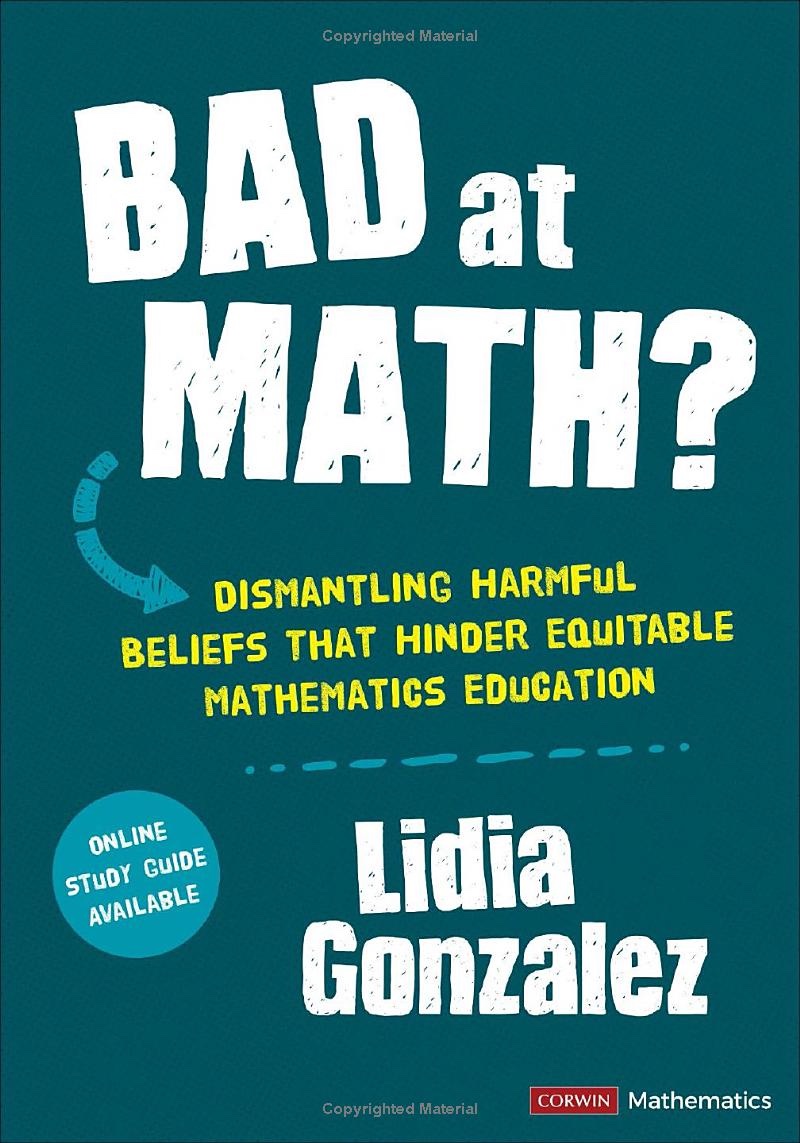
Bad at Math: Dismantling Harmful Beliefs That Hinder Equitable Mathematics Education by Lidia Gonzalez points out the fact that most people in our society are comfortable at saying they are bad at math. This certainly implies that there is something wrong with how we present and teach math in general. She also points out that the math achievement gap between poor and minority kids and wealthier children is likely an opportunity gap that perpetuates the problem. While you may not be able to solve this problem, you should do your part by starting conversations with parents, teachers, administrators, and policy makers and by sharing this important book.
Introduction
- It is somewhat alarming that most of our population is comfortable admitting publicly that they are bad at math. This behavior is also accepted by our culture and the media. This tells us that the way we conceptualize and teach math has to fundamentally change. What is needed is a growth mindset that tells you that you can get better at anything with effort. It’s vital that teachers have growth mindsets. This chapter will help.
- It is clear that existing reforms have fallen short. We also know that Black and Hispanic students struggle more with math than their white and Asian counterparts. This feeds and extends existing inequalities. It is important, therefore, to improve the mathematical experience of typically marginalized students. The main goal of this book is to tell us how to do this.
1. What Does It Mean to Be Good at Math?
- Many teachers are quick to assume a student is bad at math after one poor test score. They then view the student as not being good at math and act accordingly. Closed problems have one solution and only one way to be solved. Open problems have multiple solutions and be solved multiple ways. Open-middle problems have one solution but can be solved multiple ways. Research shows that students who routinely work on open problems do better in school and beyond. Open problems tend to take time and result in struggle, which students need to view as beneficial. Lidia provides resources for open problems here.
- Be sure to see my summary of “Dan Meyer: Math Class Needs a Makeover.” See my summary of Mindset by Carol Dweck.
2. Beyond Numbers and Equations: What is Mathematics?
- Ask students what math is and most will tell you that it deals with numbers, equations, and formulas. That is because most school math curricula put those things first and leave other topics at the end where they may never be covered. We need to broaden math teaching to include more geometry, probability, statistics, financial math, discrete math, and data science.
- Increasingly complex visual data displays are showing up in media aimed at the public. Although algebra is important, we should urge our leaders to add more real-world math to the curriculum. Many students don’t take math in their senior year in high school. This means that they will have more difficulty with college math and it virtually rules out a career in a STEM discipline. Poor kids and students of color are more likely to be left behind and have less access to AP Calculus and Statistics.
3. Mathematicians and Mathematicians in Training
- Most of us think that math discoveries have mostly been made by white males. The stereotype for a mathematician, is an awkward white guy who probably lacks social skills. Historically, white men have had privileged access to math education, which explains why they dominate more recent discoveries. There are examples of women and minorities who have made discoveries in math and we need to expose students to them. Invite local women and people of color with math jobs to meet with your students as early as possible. Also, ask students to seek them out and report to the class.
- Access to higher math in high schools starts with early decisions as to who gets tracked into higher math classes. Studies show that teacher recommendations favor whites and males beyond the advantage they would have if universal testing were in place. This is often considered too expensive even though studies show it to be racist. Fight for policies that give all students a chance to experience as much math as possible.
4. We Are All Math People
- One can make a case that we are all math people and there is lots of math involved in everyday life. If math is all about patterns, we are dealing with patterns a lot. From planning a route to sports and music we are encountering math. Be sure to ask students to hunt for the math around them. Be it math or reading, students will be more engaged if there is a context of interest.
- It’s important to help kids see themselves as math people, and to see math around them. Teachers, therefore, have to create these opportunities. Connect to contexts that hold meaning for students.
Posted in Book Summaries, Education Books, Leadership Books | Comments Off on Bad at Math: Dismantling Harmful Beliefs That Hinder Equitable Mathematics Education by Lidia Gonzalez
Monday, May 18th, 2015
Ball or Bands: Football vs Music as an Educational and Community Investment by John Gerdy (©2014) uses research to support the notion that due to costs, injuries, its focus on elite male athletes, and a negative impact on school cultures, support for high school football can no longer be defended. He also makes a case for why music and the arts in general need more support. He comes at this topic as a musician and an athlete with a brief career in the NBA. Click at the bottom of any page to get copies for your board of education members, and be strong if you take on king football.
John R. Gerdy
- John is founder and executive director of Music for Everyone. A former all-American and professional basketball player, he served at the NCAA and as associate commissioner of the Southeastern Conference. He is author of Sports: The All-American Addiction and Air Ball: American Education’s Failed Experiment with Elite Athletics.
John’s Journey Through Sports and Music
- The first two chapters outline John’s background experiences in athletics and music. While his father was a physics teacher, he was also the head football coach. Much to his father’s disappointment, John chose basketball and went on to become the leading career scorer at Davidson College followed by a brief professional career. He then went on to get a PhD and work several jobs as a sports administrator. His music life started in eight grade where he quit the school chorus because the director wouldn’t do any Beatles songs (1971). In high school he picked up the guitar, and over time gradually learned percussion and saxophone. As he moved around, he looked for opportunities to play in pick up bands and perform in clubs.
- When his kids started school he volunteered to perform and teach, and even went so far as to develop a seven-week blues curriculum, which culminates in an assembly where children sing and play percussion to a blues song that they have written. John sees little difference between open mic and pick up basketball or other team sports. Each group is striving toward a common goal, which is to figure out where everyone’s talents can contribute.
Posted in Book Summaries, Education Books, Leadership Books | Comments Off on Ball or Bands: Football vs Music as an Educational and Community Investment by John Gerdy
Thursday, May 6th, 2021
Be Excellent On Purpose: Intentional Strategies for Impactful Leadership by Sanée Bell shares her experience and vision as a school leader. As someone who has taught leadership for aspiring principals, I find her advice to be totally on the money. This would be an excellent book for any school leadership course. It’s also good reading for teachers who don’t aspire to the principalship, but who nonetheless lead in their own way.
Introduction
- To be excellent on purpose you need to be intentional with your time, intentional with the company you keep, and intentional about where you focus your thinking and energy. This will allow you to set a standard for success and do what it takes to close the gap between where you are and what you are striving to become. Excellence is a journey that requires effort and energy. You will see barriers as obstacles that you can overcome. This book is designed to help you develop habits that will help you lead with excellence.
1. Own Your Excellence
- As a young girl, Sanée had a vision that she wanted to compete with the boys in her neighborhood. She was clear and intentional about what she wanted to accomplish and built the steps needed to get there. Her vision was the roadmap to the end. It was her strategy for success. Later she was able to generalize her playground success to the rest of her life.
- Start by thinking about what you want to achieve. Then identify the action steps you need to take. Identify the barriers and develop a plan to eliminate them. As you move forward monitor your progress. As you develop your vision be sure you know why. This is where you will summon your motivation. Your why is what gives your vision meaning and purpose. With your why firmly in place you next have to address how you are going to accomplish your goals. Along the way be honest with others and yourself. As you venture into the unknown try to develop a level of comfort with it and with your own vulnerability. Celebrate your accomplishments rather than feeling like an imposter.
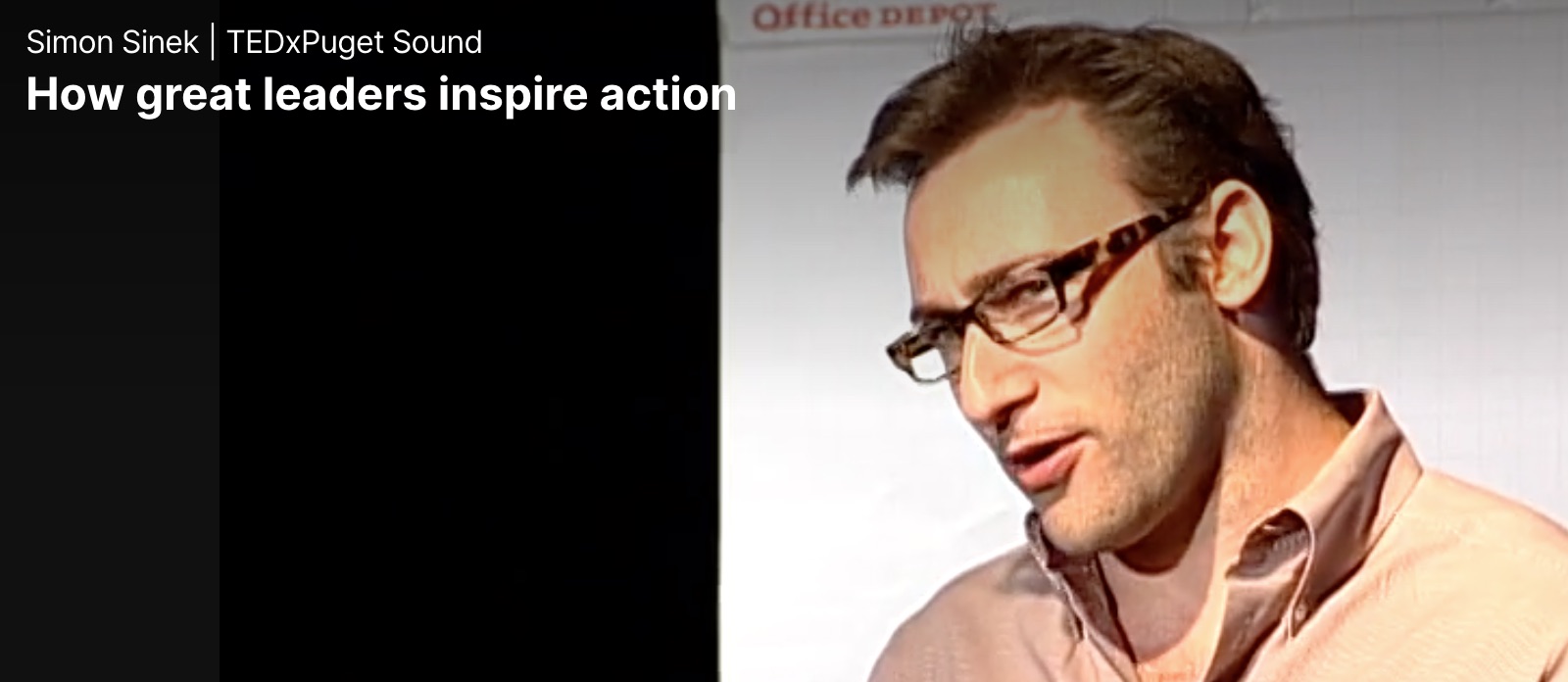
Sanée was inspired by Simon Sinek’s TED Talk How Great Leaders Inspire Action. Give it a look.
2. Understand the Power of Words and Actions
- Sanée’s mantra is “lead with purpose, intention, and excellence. Be excellent on purpose and strive for excellence in all we do.” Success is a result of intentional planning and hard work. Know that everything you do matters and that everyone is watching. Focus on what you can control. While culture work belongs to the group, the leader has the biggest responsibility. Your words need to match your actions. Work to get a commitment to continuous improvement. Ask “where can we continue to grow and improve?” Striving for excellence does not involve making excuses.
- Start with a focus on what’s strong rather than what’s wrong. Once you do this you can figure out how to make not-so-great areas better. It’s important to determine why what’s working is successful. Then it’s on to finding out why some things aren’t working well. You can give pep talks focused on your mission. Point out obstacles you overcame. Celebrate this achievement with the group and identify the challenges ahead. Speak from the heart and use emotion to inspire the group.
3. Expand Your Connections
- It is important that leaders use their abilities to connect. They need to broaden their network to include leaders outside of education and leaders around the world. This can greatly expand one’s learning. Think of it as your professional development network (PDL). This will also expose you to new opportunities. Look for people who push your thinking, not just people who always agree. Look for opportunities to meet people at conferences who you follow online.
- As you expand your virtual support team, be sure to prioritize local face-to-face connections. Sanée suggests that you schedule regular get-togethers with people who can support your work as you support theirs. You also need to manage by walking around. As you do so, check in with the people you lead. Be sure to ask “how are you doing” and as they say “I’m doing fine,” watch their body language to see if it sends the same message or a different one. Ask questions like why and don’t tell them how you solved their problems. Take time to be alone to think and write. Be sure to share what you write, which is easy today thanks to blogs like mine where you can guest post.
Posted in Book Summaries, Business Books, Education Books, Leadership Books | Comments Off on Be Excellent On Purpose: Intentional Strategies for Impactful Leadership by Sanée Bell
Thursday, April 14th, 2011
This eye-opening book features the big idea that embracing mistakes can make us happier and more productive in every facet of our lives. It examines the tension between the idea that we must make mistakes to learn, and the fact that we often get punished for them. © 2011, Riverside Books: New York, New York
Another Way of Learning
- My teacher said I learn by making mistakes. Since I didn’t make any today, I guess I didn’t learn anything. This story is followed by the notion that when people think they must do everything perfectly, they can spend energy blaming each other rather than finding a solution. It results in defensiveness and accusations rather than apologies and forgiveness. Mistake prevention gets in the way of daring and innovation. Most of us think that mistakes make us look stupid.
(Re)Defining Mistakes
- My teacher said I learn by making mistakes. Since I didn’t make any today, I guess I didn’t learn anything. This story is followed by the notion that when people think they must do everything perfectly, they can spend energy blaming each other rather than finding a solution. It results in defensiveness and accusations rather than apologies and forgiveness. Mistake prevention gets in the way of daring and innovation. Most of us think that mistakes make us look stupid.
Tags: Alina Tugend, Better By Mistake, Book Summary
Posted in Book Summaries, Business Books, Education Books, Leadership Books | Comments Off on Better By Mistake – Improve your life and performance by Alina Tugend
Thursday, September 27th, 2012
Better Than College: How to Build a Better Life Without a Four-Year Degree by Blake Boles (Copyright © 2012 by Blake Boles) offers the thesis that you can skip four-year college and still get a higher education. This may seem nuts, but spend a few moments considering the propositions, and you’ll begin to see why Zero Tuition College (ZTC) holds just as much life-changing potential as traditional college. Please click on the icon at the bottom of any page to purchase this outstanding book.
Blake Boles
- After two years as an astrophysics major at US Berkley, Blake convinced the school to let him design his own alternative education major. Two years later, he realized that he didn’t need school at all to do what he had just accomplished. Unfortunately, not every college would allow him to do what he did. He has since met many young adults who did everything that he did—learning deeply, developing mastery, becoming exposed to new fields, adventuring, building work experience, and following their passions—without the college price tag..
What is a Higher Education?
- When the price of oil rises, we look more seriously at alternative energy. When a business raises its prices, we consider different ways that we could obtain the same goods or services. But even though the price of college has skyrocketed, we still flood its gates. Why? A college degree proves that you can survive four years. It’s a piece of paper that says, I followed a prescribed path. A higher education, though, is first and foremost the capacity to self-direct your life. Someone who has a higher education can define her own vision of success and pursue it, even in the face of difficulty. A college degree does not guarantee a higher education.
The Alternative
- Instead of following someone else’s curriculum, self-directed learners begin by asking themselves what fascinates and drives them. Their journey begins—and ends—with self-knowledge. Instead of taking full-time classes, self-directed learners give themselves assignments that they find interesting, eye-opening, and challenging. They start businesses, find internships, travel the world, read and write about things that fascinate them, and work for organizations they admire. Instead of working on homework, papers, and presentations destined to be seen once and tossed into a trash can, self-directed learners turn much of their hard work into useful products for other people.
Posted in Book Summaries, Education Books | Comments Off on Better Than College: How to Build a Better Life Without a Four-Year Degree by Blake Boles
Thursday, May 13th, 2010
For four decades Jamie McKenzie has been stressing the importance of engaging students in challenges that require original thought as they deal with new technology. This book takes on that challenge directly. It is designed to support teachers and leaders intent on raising a generation of thinkers capable of asking tough questions while generating good ideas. His insight and the resources in this book are ideal for staff development efforts and graduate courses.
Click here to see my review of this book.
Tags: Beyond Cut-and-Paste, Jamie McKenzie, new technology
Posted in Book Summaries, Education Books, Leadership Books | Comments Off on Beyond Cut-and-Paste – Jamie McKenzie
Friday, September 10th, 2010
Blink: The Power of Thinking Without Thinking is Malcolm Gladwell’s second bestseller. Even though it was written in 2005, the information remains current and valuable. This summary is written with educators in mind. His 3rd book, Outliers, is also available here.
Click here to see my summary Blink.
Tags: Blink, Malcolm Gladwell, Rapid Cognition
Posted in Book Summaries, Business Books, Education Books, Leadership Books | Comments Off on Blink – Vintage Gladwell






